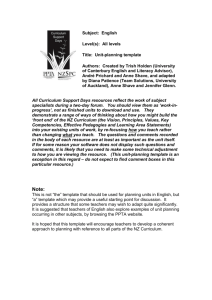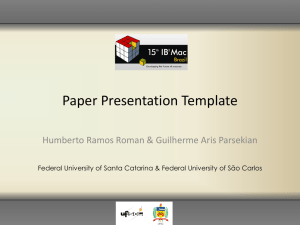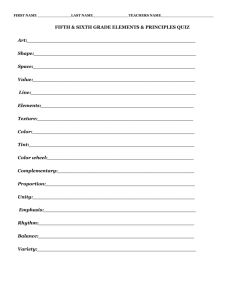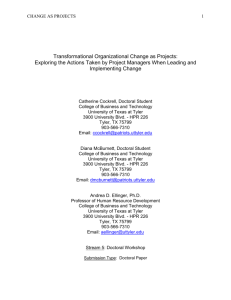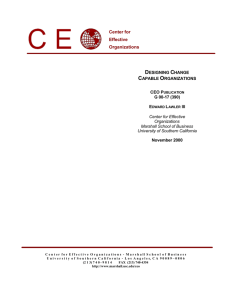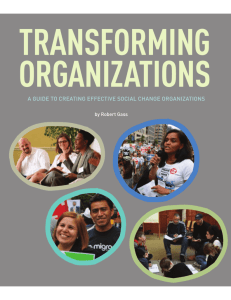WHEEL OF CHANGE What It Is What It Can Do When To Use It How
advertisement
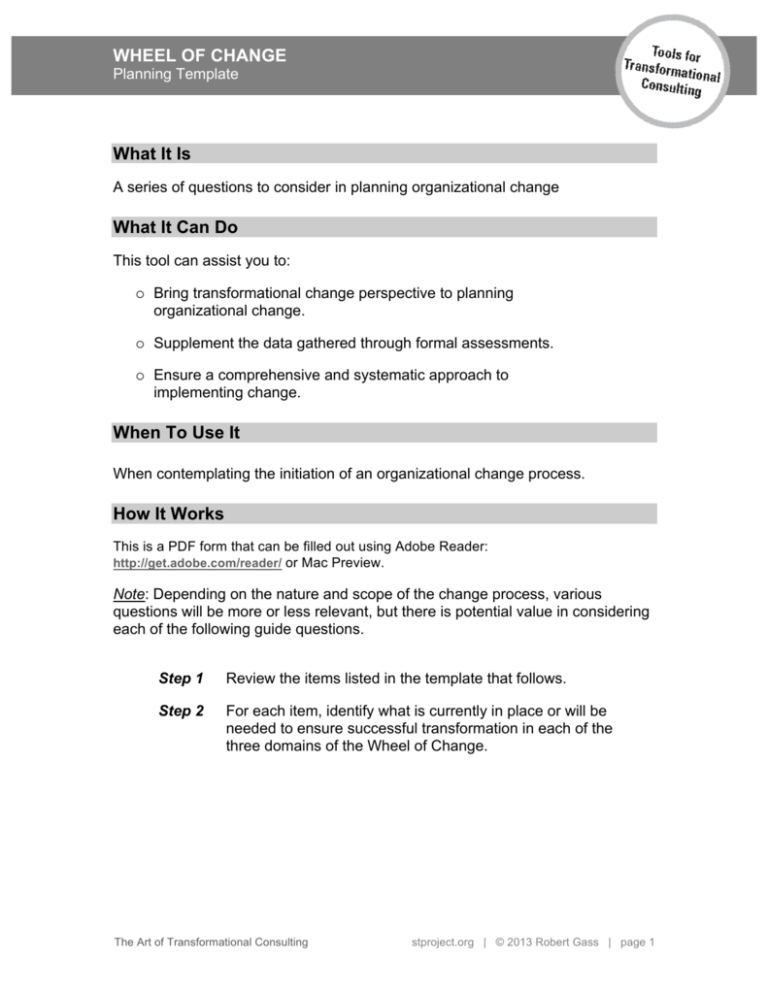
WHEEL OF CHANGE Planning Template What It Is A series of questions to consider in planning organizational change What It Can Do This tool can assist you to: Bring transformational change perspective to planning organizational change. Supplement the data gathered through formal assessments. Ensure a comprehensive and systematic approach to implementing change. When To Use It When contemplating the initiation of an organizational change process. How It Works This is a PDF form that can be filled out using Adobe Reader: http://get.adobe.com/reader/ or Mac Preview. Note: Depending on the nature and scope of the change process, various questions will be more or less relevant, but there is potential value in considering each of the following guide questions. Step 1 Review the items listed in the template that follows. Step 2 For each item, identify what is currently in place or will be needed to ensure successful transformation in each of the three domains of the Wheel of Change. The Art of Transformational Consulting stproject.org | © 2013 Robert Gass | page 1 WHEEL OF CHANGE PLANNING TEMPLATE Hearts & Minds What is currently in place or will be needed to ensure that: Purpose/Vision People can connect the change to their deeper purpose for doing this work. People share a clear and compelling vivid picture of what success would look like. People are committed and aligned with the change process. Beliefs People believe that they have some power to influence the change process. Potentially limiting beliefs and assumptions are named and addressed. Conditions are created for creative thinking, breakthroughs and new paradigms to empower the change. Emotions Feelings such as cynicism, resistance to change, anxiety, and anger that might potentially impede or derail the change are skillfully surfaced and addressed. Positive emotions are inspired to help fuel the change process. There is ongoing support and development of individual and collective emotional intelligence. Belonging There is a collective sense of ownership over the change process throughout all levels of the organization, beginning with top leadership. The trust and partnerships necessary for change are cultivated within and across organizational silos. Safe spaces are created to name and successfully address significant barriers to trust and peoples’ sense of belonging. The Art of Transformational Consulting stproject.org | © 2013 Robert Gass | page 2 WHEEL OF CHANGE PLANNING TEMPLATE Behavior What is currently in place or will be needed to ensure that: Norms Clear norms/team agreements are established that are tied to the success of the change. There is shared commitment and ownership of the norms (especially among top leaders) Everyone at all levels of the organizations understands how they need to act (and not act) to help implement the change. Communication Top leaders model authenticity and transparency, especially regarding the change process. There is an excellent communication plan for the change process that keeps people well-informed and well-engaged. There is a flow of honest, timely feedback throughout the organization to ensure the learning critical to the success of the change. Accountability Individuals understand and own their goals and responsibilities for the success of the change. There is adequate time for the reflection and evaluation needed for successful implementation of these goals. Individuals are impeccable both re. their own commitments to the change process, and in holding each other accountable. Support Adequate support is available for those playing key roles in the change process (mentoring, professional coaching, peer coaching, etc.) There is sufficient training in critical skills needed for successful implementation of the change: both technical skills, and personal and interpersonal mastery. Space and support is created for practice of new behaviors and acceptance of the “mistakes” that are integral to learning. The Art of Transformational Consulting stproject.org | © 2013 Robert Gass | page 3 WHEEL OF CHANGE PLANNING TEMPLATE Systems What is currently in place or will be needed to ensure that: Strategies There is a well thought-out plan for the successful launch and implementation of the change process Plans include performance metrics to support successful implementation of the change plan Implications of the proposed changes for existing organizational strategies have been thoroughly explored and addressed Structures Structures that best support implementation of the changes are in place or created as part of the change process Existing organizational structures are assessed for their alignment with the proposed changes Potential implications of the changes for existing organizational structures have been thoroughly explored and addressed Processes Processes that best support implementation of the changes are in place or created as part of the change process Existing organizational processes are assessed for their alignment with the proposed changes Potential implications of the changes for existing organizational processes have been thoroughly explored and addressed Core competencies The changes build upon the existing core competencies of the organization There is adequate capacity within these competencies to meet the demands of the proposed changes (or plans for expansion are included) If the proposed changes requires a competency that is not already present, that adequate plans are made to develop or acquire this competency The Art of Transformational Consulting stproject.org | © 2013 Robert Gass | page 4

